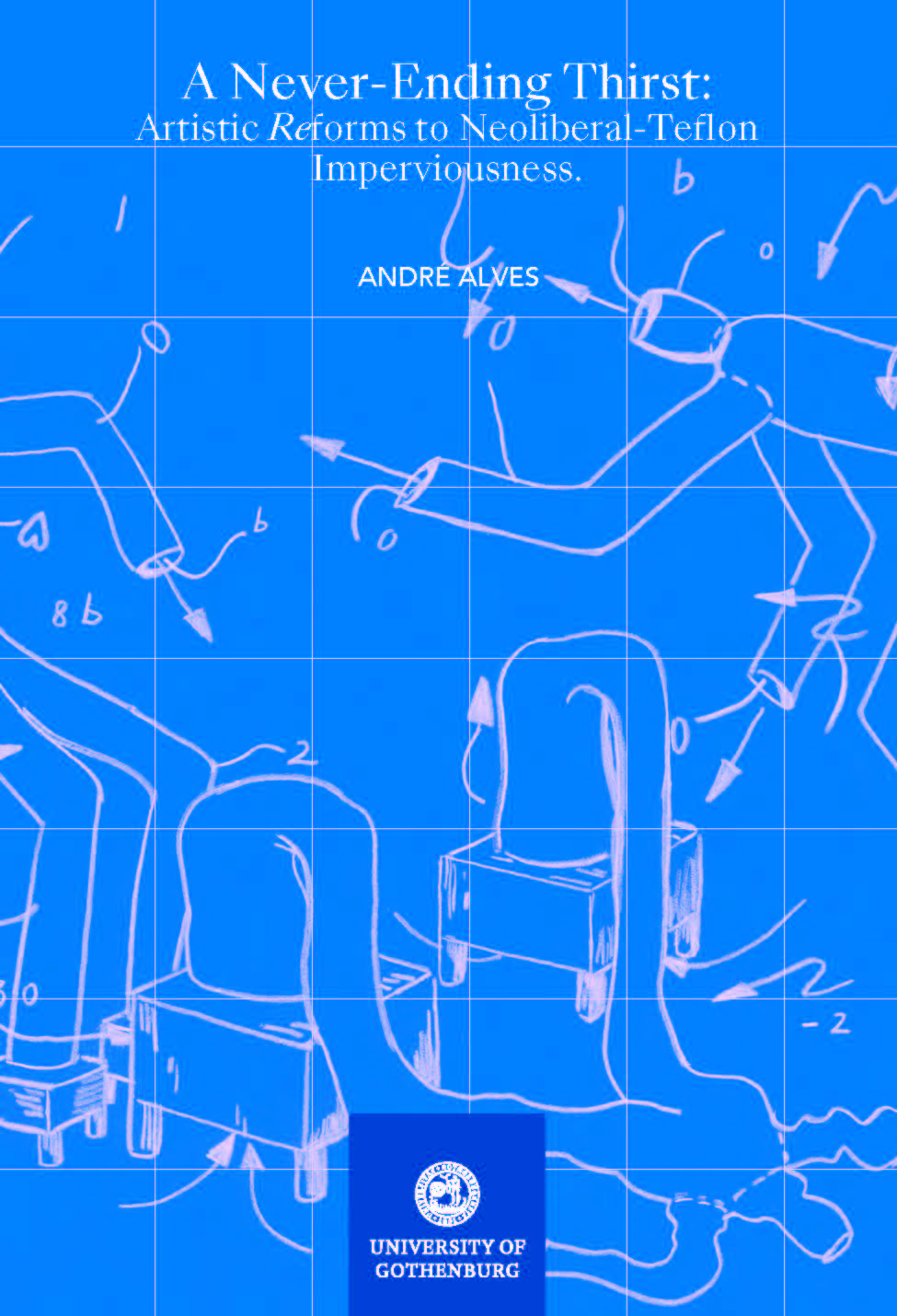In this book, visual artist André Alves describes the artistic research project “A Never-Ending Thirst: Artistic Reforms to Neoliberal-Imperviousness”, conducted at HDK-Valand—University of Gothenburg (2016-2021). At the core of this project is the debate about the effects that capitalism has in the loss of sensitivity and imagination in culture, and the potential of art or its complicity in such loss.
The book opens with the description of an encounter Alves had with an unusual street ad with the text “Sede do Grupo da Juventude Cansada” (translates to English as “Thirst/Headquarters of the Group of the Fatigued/Fed-up Youth”) in the city of Porto (Portugal) in 2015. That encounter is trigger of Alves doctoral research project focusing on the post-industrial capitalism capture of subjectivity.
At the departure of the project is the attempt to visualize the shaping of subjectivity through the relationship with work in the post-industrial capitalism. Inspired by the Maria Franco Ferraz concept of “Teflon-Skin” used to describe post-industrial capitalism’s pattern of self-preservation and desensitization, Alves addresses how can artistic research contribute with new political imaginaries and rehabilitations of sensitivity and imagination to counter what he describes as “Neoliberal-Teflon Imperviousness.” At stake in this research is the ways in which artistic strategies can be deployed to undo the perception of others as threats felt as “delaying” us, “troubling”, “demanding”, “hard work”, and which influence us to align with what is already familiar, predictable to us.
Throughout the book, Alves enunciates these problems and introduces different artistic practices that experiment with increasing permeability in the bunkered culture of late capitalism. Proposing visual art as an incomplete way of seeing-knowing that calls for a listening horizon, throughout the book Alves addresses the reader with the question of how we might live a listening life together.


